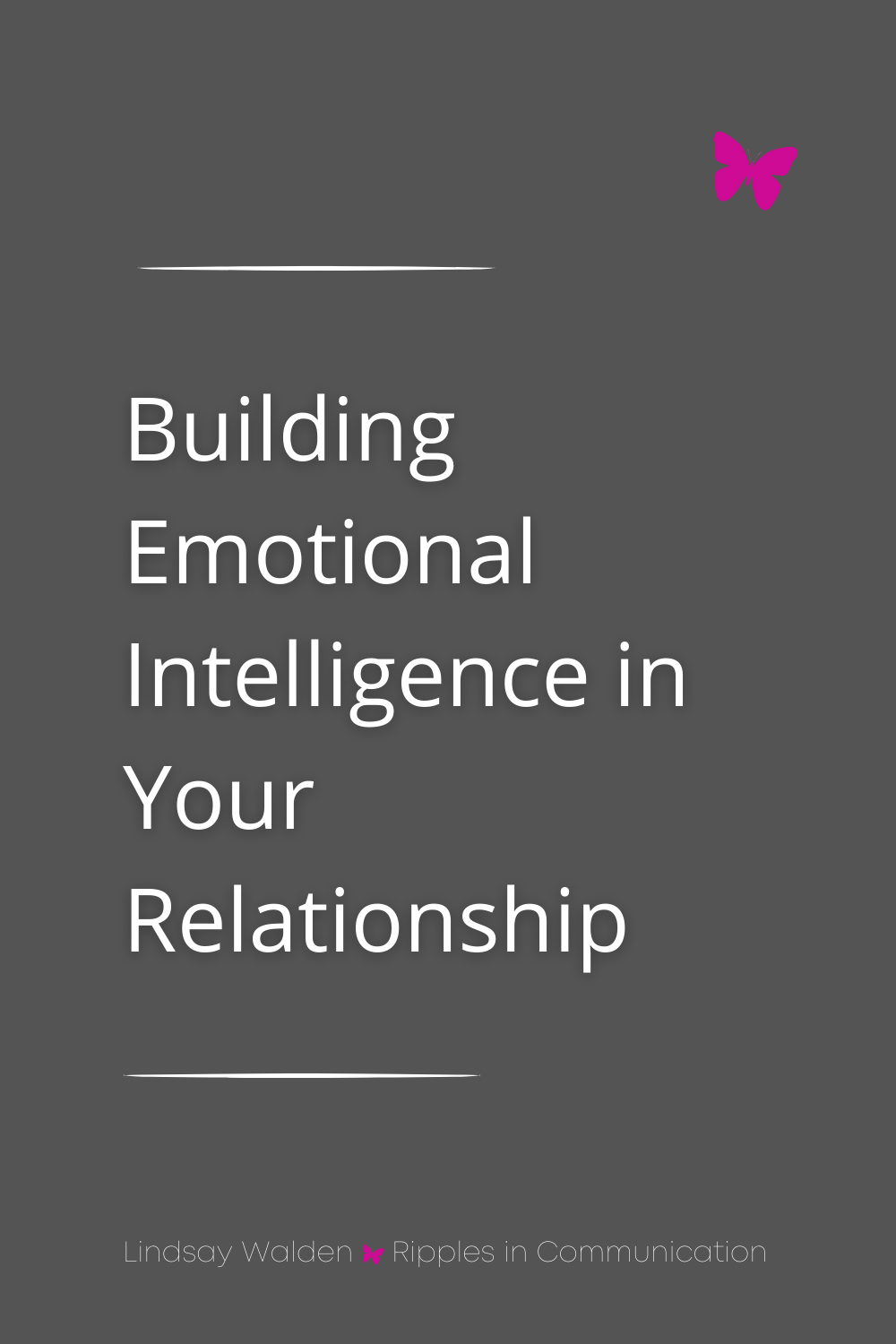Resolving Conflicts with Curiosity: A New Approach to Relationship Challenges
In my two decades of working with couples, I've learned a crucial truth: no fight is "stupid," and no annoyance is "little" in relationships. Often, what begins as a minor irritation can escalate into significant issues, threatening the stability of a relationship. Clients frequently express confusion over their strong reactions to seemingly trivial matters. But here's what's really happening: these 'minor' issues are often symptomatic of deeper, unresolved conflicts.
Have you gotten my FREE Relationship Communication Guide yet? Start building an authentic, conscious, and thriving relationship with your partner TODAY. Say goodbye to misunderstandings, conflicts, and missed opportunities for a deeper connection. These are the same tips and practical advice I give to my clients every day. With this guide, you'll be equipped to navigate any communication challenge and build a strong and fulfilling bond with your partner. Click the button below to enter your email address and I will send the guide to your inbox right away!
The "Residue Buildup" in Relationships
Imagine a public grill at a park. You wouldn't cook on it without cleaning off the layers of grime and residue first, right? Similarly, relationships accumulate a 'residue' from daily interactions and unresolved disputes. Initially, certain behaviors may seem harmless or even endearing, but repeated over time, they can become sources of irritation and resentment. Recognizing and addressing this buildup is crucial for a healthy relationship.
Addressing the Residue
The key to dealing with residue buildup is to regularly confront and clear these small irritations. Start by reflecting on what specifically bothers you and why. Don't settle for the first thought that comes to mind—delve deeper. This process, which I call 'uncovering the thing beneath the thing,' helps identify the underlying issues triggering your emotional responses.
Ready to unravel the deeper layers of relationship conflicts? My latest blog post offers a fresh perspective on understanding and managing emotions in relationships. Get ready to change the way you communicate and connect!
Beyond Toothpaste Tubes and Dishwashers: Unmet Needs and Expectations in Relationships
It's common for couples to argue over mundane tasks like how to squeeze the toothpaste or load the dishwasher. However, these conflicts are rarely about the tasks themselves. Instead, they reflect deeper issues in the relationship, such as unmet needs, unexpressed expectations, or feelings of being undervalued or misunderstood.
Every individual enters a relationship with a set of needs. These can range from the need for affection, validation, respect, to the need for space and independence. When these needs aren't met, it often leads to feelings of dissatisfaction or resentment. For example, if one partner craves more emotional intimacy but doesn't feel that need is being met, they may become irritable over minor issues. This irritation is less about the issue at hand and more about the underlying need for closer emotional connection.
Relationships often suffer from a lack of clear communication, especially regarding expectations. Many couples operate on unspoken rules or assumptions about how things 'should' be done. This can lead to conflict when these expectations are not met. For instance, if one partner assumes the other should always initiate plans or take care of household chores without having discussed this, it can lead to frustration and arguments over seemingly small matters. These conflicts are actually a manifestation of a deeper need for clear communication and understanding of each other’s expectations.
Feeling undervalued or misunderstood can significantly impact relationship dynamics. When individuals feel that their efforts are not appreciated or their perspectives are constantly misinterpreted, it can lead to a buildup of resentment. This might manifest in overreactions to minor incidents. For example, a partner might explode over a forgotten grocery item, but the real issue might be a long-standing feeling of their efforts and needs being consistently overlooked or misunderstood.
How to Find a Path Towards Better Understanding in Your Relationship
To resolve these deeper issues, it's essential for partners to engage in open and honest communication. This involves:
Identifying and Expressing Needs: Partners should openly discuss their individual needs, ensuring that these conversations are approached with empathy and a willingness to understand each other.
Setting Clear Expectations: Couples need to communicate their expectations clearly and negotiate responsibilities in the relationship. This helps prevent misunderstandings and resentment from building up.
Acknowledging and Appreciating Each Other: Regularly expressing appreciation and making efforts to understand your partner's perspective can strengthen the relationship. It's about acknowledging the value each person brings to the partnership.
By addressing these deeper issues, couples can move beyond surface-level conflicts and work towards a more fulfilling and understanding relationship. Next up is understanding the idea of emotional neutrality and how to put that into practice when communicating with your partner.
Understanding Emotional Neutrality
Emotional neutrality is not about being emotionless or indifferent. It's about gaining a balanced perspective that allows you to respond to situations calmly, rather than react impulsively. In the context of a relationship, achieving emotional neutrality means being able to step back from immediate emotional responses and examine the situation more objectively.
The Importance of Emotional Neutrality in Conflict Resolution
When conflicts arise, emotions can run high. If these emotions are not managed, they can escalate the conflict, leading to hurtful words and actions that may cause long-term damage to the relationship. Emotional neutrality helps in:
Reducing Misunderstandings: By not getting overwhelmed by emotions, you're more likely to listen actively and understand your partner's point of view.
Fostering Constructive Dialogue: It creates a safe space for open and honest communication, where both partners feel heard and respected.
Preventing Escalation: Keeping emotions in check helps prevent minor disagreements from escalating into major arguments.
6 Steps to Achieve Emotional Neutrality
Recognize Your Emotional Triggers: Identify what sets off your emotional reactions. Is it a specific action, a tone of voice, or a particular topic? Self-awareness is the first step towards emotional regulation.
Pause Before Responding: When you feel yourself getting emotionally charged, take a moment to pause. This break can be a few seconds or longer, whatever is needed to prevent an immediate reactive response.
Practice Mindfulness: Mindfulness techniques, like deep breathing or grounding exercises, can help bring your focus back to the present moment, reducing the intensity of your emotional reaction.
Reflect on the Underlying Issues: Ask yourself why a particular action or word from your partner is triggering such a strong response. Is it linked to past experiences, insecurities, or unaddressed issues in the relationship?
Communicate Your Feelings: Once you’ve gained a clearer understanding of your emotions, communicate them to your partner in a non-confrontational way. Use "I" statements to express how you feel without blaming or accusing.
Seek to Understand, Then to Be Understood: Listen to your partner's perspective with an open mind. Understanding their viewpoint can provide valuable insights into the situation.
Building Emotional Neutrality as a Habit
Achieving emotional neutrality is a skill that requires practice and patience. It's about developing a habit of responding thoughtfully, rather than reacting on impulse. As this habit strengthens, you'll find that conflicts become less about winning or losing and more about understanding and resolving. This shift is crucial for building a strong, resilient, and mutually supportive relationship.
Let's explore the role of emotional intelligence in cultivating healthy, lasting relationships. My lates blog post provides practical tips and insights to enhance understanding and connection with your partner. Learn how to boost emotional intelligence in your relationship
Cultivating Curiosity and Understanding in Relationships
In the journey of a relationship, understanding your emotional landscape is as important as understanding your partner's. It's essential to give yourself the freedom to explore and question your emotional reactions. This exploration doesn't invalidate your feelings; rather, it's an attempt to understand them more deeply. Why do certain actions or words trigger such strong emotions in you? Is there a pattern to these reactions? This form of self-inquiry is a vital step in gaining insight into your own emotional triggers and needs.
The Role of Curiosity in Conflict Resolution
Curiosity is a powerful tool in any relationship. It allows you to look beyond the surface of emotional reactions and understand the deeper issues at play. When you approach conflicts with curiosity, you open the door to more meaningful conversations that can lead to resolution and growth. Instead of immediately reacting, ask yourself: What is this emotion telling me? What can I learn from this reaction? This shift from reactivity to curiosity can transform conflicts into opportunities for deeper understanding and connection.
While it's important to acknowledge your immediate emotional responses, it's equally important to recognize that they may not always reflect the entire truth of a situation. Emotions are complex and can be influenced by various factors, from past experiences to present stresses. By taking the time to understand the origins of your emotions, you can approach conflicts with greater clarity and empathy.
Empathy: The Bridge to Mutual Understanding
Empathy is the natural extension of curiosity and understanding. When you understand your own emotions, you're better equipped to empathize with your partner's feelings. Empathy allows you to see the situation from their perspective, fostering a deeper emotional connection and mutual respect. It's about understanding that both partners have valid experiences and emotions, and that recognizing and valuing these experiences is key to a healthy, thriving relationship.
Conclusion: Building a Foundation for a Thriving Relationship
In conclusion, the journey of a relationship is often marked by the navigation of both small annoyances and significant challenges. It's important to remember that what may seem like trivial disagreements are often windows into deeper, underlying issues. By acknowledging and addressing the 'residue buildup' of unmet needs, unexpressed expectations, and feelings of being undervalued or misunderstood, couples can prevent these minor irritations from escalating into larger conflicts.
Embracing emotional neutrality is a crucial step towards understanding and resolving these underlying issues. It allows couples to step back, assess situations objectively, and communicate more effectively. The practice of mindfulness and self-awareness helps in identifying emotional triggers, leading to more thoughtful and empathetic interactions.
Furthermore, cultivating a sense of curiosity about one's own emotions and those of their partner lays the groundwork for deeper understanding and empathy. This approach transforms conflicts from obstacles into opportunities for growth and deeper connection.
Ultimately, the path to a strong, healthy, and thriving relationship is built on a foundation of open, honest, and direct communication. It requires both partners to actively engage in self-reflection, empathetic listening, and a commitment to mutual understanding and respect. By adopting these principles, couples can enhance their connection, ensuring a resilient and fulfilling partnership that stands the test of time.
Start each day with affirmations that foster love, understanding, and effective communication in your relationship. Here are 10 affirmations to help you and your partner grow closer and stronger. Embrace positivity and emotional intelligence for a healthier, happier partnership.







